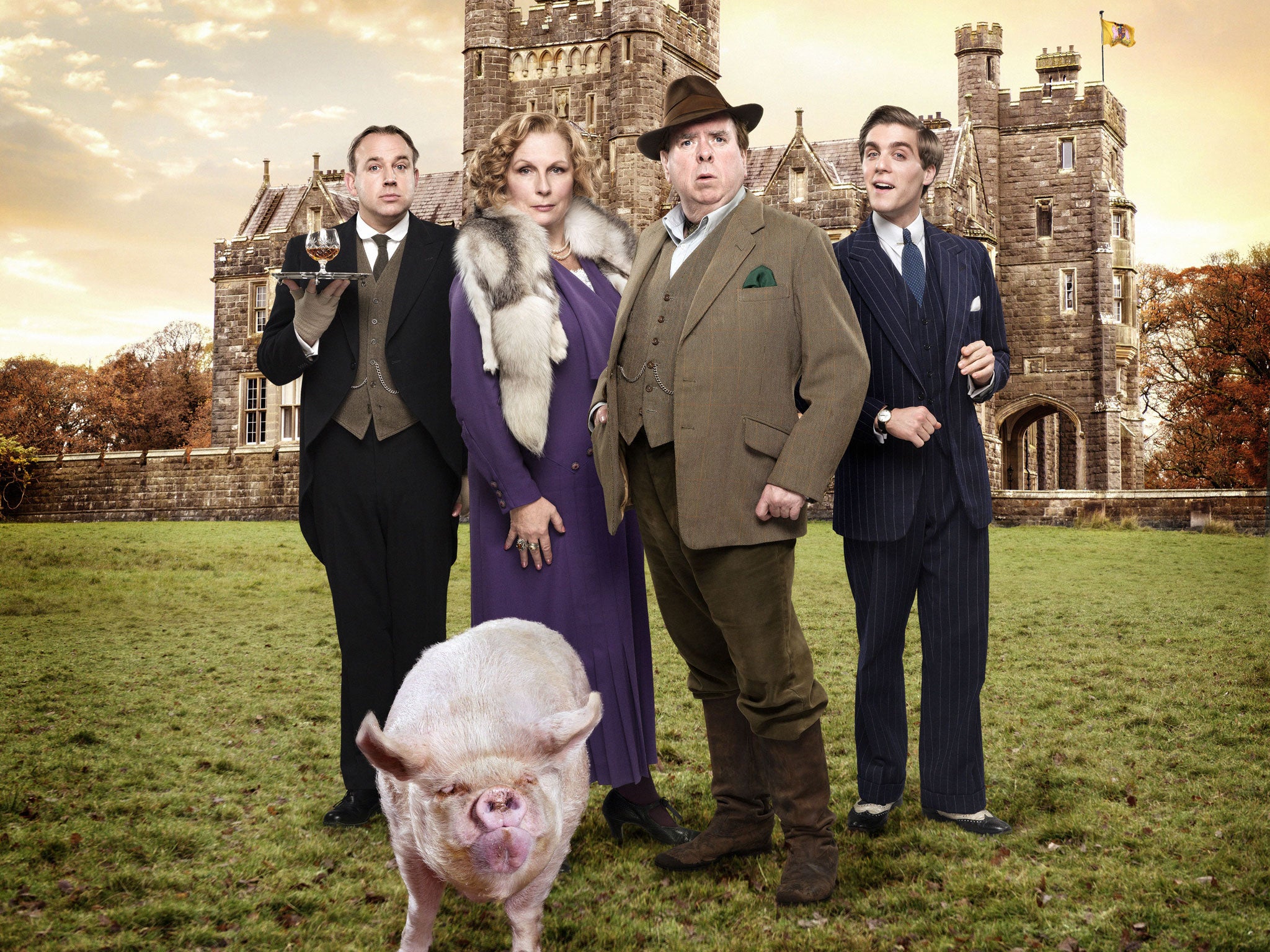
Your support helps us to tell the story
From reproductive rights to climate change to Big Tech, The Independent is on the ground when the story is developing. Whether it's investigating the financials of Elon Musk's pro-Trump PAC or producing our latest documentary, 'The A Word', which shines a light on the American women fighting for reproductive rights, we know how important it is to parse out the facts from the messaging.
At such a critical moment in US history, we need reporters on the ground. Your donation allows us to keep sending journalists to speak to both sides of the story.
The Independent is trusted by Americans across the entire political spectrum. And unlike many other quality news outlets, we choose not to lock Americans out of our reporting and analysis with paywalls. We believe quality journalism should be available to everyone, paid for by those who can afford it.
Your support makes all the difference.Blandings Castle, the fictional seat of Lord Emsworth (Timothy Spall), is much more the sort of building of which Prince Charles would approve, and Blandings, which started a second series on BBC1 last night, is much more the sort of Sunday programming we’re used to.
But if you must wind down with nostalgic mush populated by aristocratic nitwits, at least let these nitwits be the creations of PG Wodehouse.
This episode began with a red-faced Duke of Dunstable (Harry Enfield) roaring through the house, while brandishing a poker. My reaction was similar when I discovered that The Fast Show’s Mark Williams, who played the butler, Beach, in series one, had been replaced with stand-up Tim Vine.
Still, even minus Williams, Blandings is a lot of fun. Enfield doing his Cholmondley-Warner on steroids was just one of the several guest stars we’re promised. Mathew Baynton also turned up as an unsuitable suitor to Dunstable’s niece, and this forbidden match led, in a roundabout Wodehousian way, to an attempt to have Emsworth committed. Even among English eccentrics, entering one’s prize pig in the Epsom Derby is considered outré.
As ever, it was the butler’s discreet intervention that saved the day. Blandings is set in 1929, but Beach/Vine’s scheme hinged on a reference to the 1944 film To Have and Have Not: “You know how to whistle, don’t you?” he asked Freddie. “Yes, yes. You blow and then you put your lips together.” Rest assured such glaring anachronisms would never have been permitted at Blandings in Mark Williams’s day.
Join our commenting forum
Join thought-provoking conversations, follow other Independent readers and see their replies
Comments